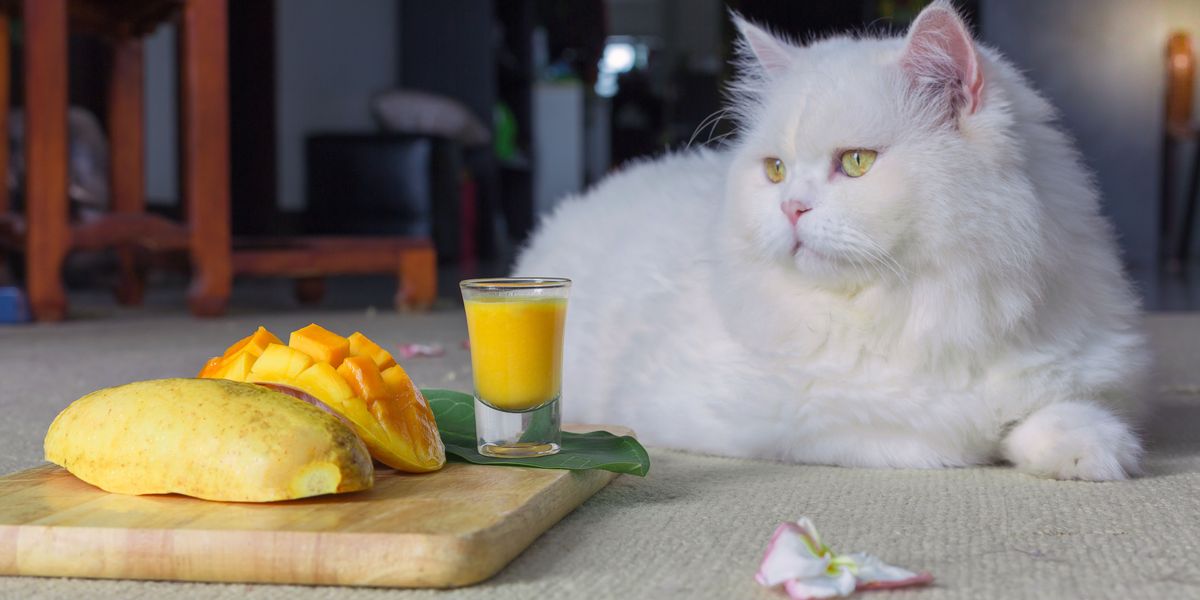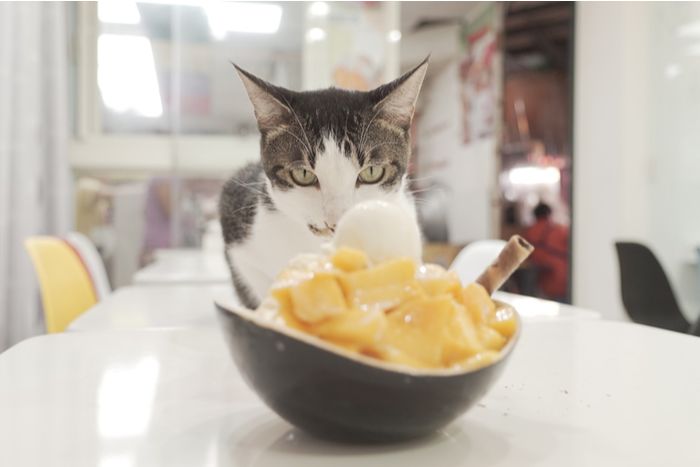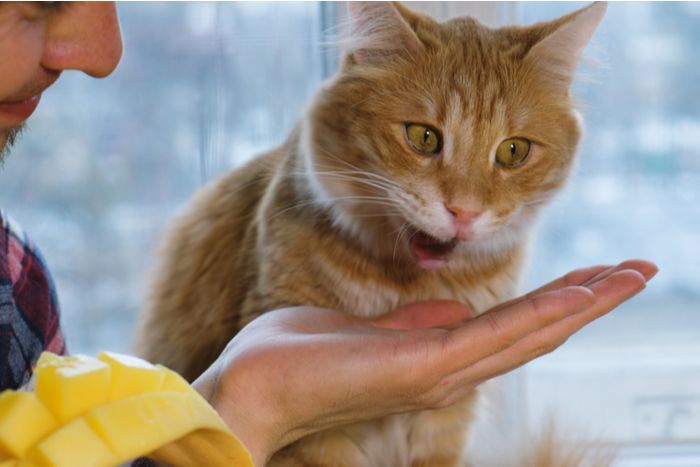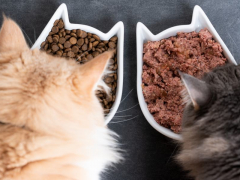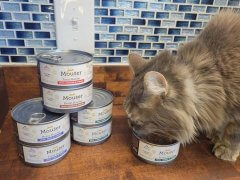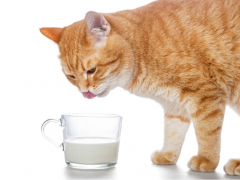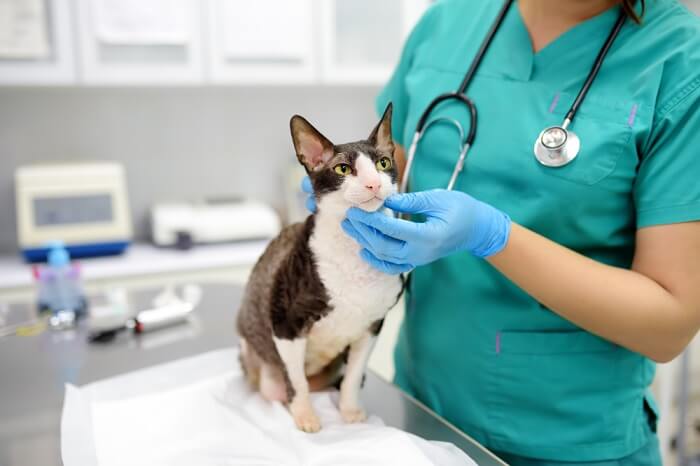One of the most widely consumed fruits around the world, mangoes are a tropical fruit from the drupe family that originated in India. They contain a single large stone in the center.
Humans love the refreshing, juicy taste of mango and it’s a great sweet snack that’s also healthy. But can you share a little of this tasty fruit with your cat?
The simple answer is yes, cats can eat mango and it is nontoxic. However, cats are “sweet blind,” meaning that they can’t actually taste sweet foods. This makes it a relatively unappealing food for them, although some cats will enjoy a few pieces once in a while.
So let’s have a look at when and how cats can eat mango, and a few of the risks.
Cats can eat mango in small amounts as a treat, but it should not be a significant part of their diet and should be given in moderation.Quick Overview: Can Cats Eat Mango
Toxic: No
Commonly Allergenic: No
Species Appropriate: No
How Often to Feed: Occasional
How Much to Feed: Supplemental
Summary of Content
Is Mango Good for Cats?
Cats do not have the taste receptors for sweet flavors, so your cat is not likely to enjoy mango.
Although mango is highly nutritious for humans, it is sadly not the case for cats. Although vitamins, fiber, and antioxidants are beneficial for cats, the high sugar content outweighs these benefits.
Cats cannot eat as much sugar as humans because it can make them unwell. Additionally, cats are obligate carnivores, meaning they must consume meat and fish to stay healthy, and this is where they get most of their nutrition.
A small amount of freshly peeled mango can be a tasty treat for cats on special occasions. However, there are other healthier and more nutritionally balanced treats to offer to your feline friend, including other fruits that contain less sugar such as apples and blueberries.
How Much Mango Can a Cat Eat?
A small amount of fresh, peeled mango is OK for cats to eat occasionally, and if your feline friend gets their paws on a few pieces then you certainly don’t need to worry.
But mango should be reserved as a very occasional treat as too much could give your cat an upset tummy or contribute to weight gain. A few very small pieces are plenty.
Also Read: Best Cat Food For Weight Gain
How Often Can a Cat Eat Mango?
Mango should not be a regular feature in your cat’s diet. A small piece of fresh, peeled mango given as a rare treat is plenty. Any more than this and the sugar content will be too much for your cat. Remember, cats can’t taste sweet flavors, so they won’t be particularly attracted to mango anyway.
Do Cats Like the Taste of Mango?
Cats often enjoy a little taste of human food, and some cats will do anything to get their paws on some. However, cats are not naturally attracted to the sweet taste of mango as they can’t actually taste sweet foods. They may enjoy the texture of mango but are likely to turn their nose up at it as they won’t get to enjoy the delicious, sweet flavor!
Is Mango Used in Commercial Cat Food?
Mango is not commonly used as an ingredient in commercial cat foods. This is because it is very sugary, and not only are cats “sweet blind,” but too much sugar is very unhealthy for cats. Most commercial cat foods contain vegetables as fillers to bulk out and add texture to meat rather than fruit.
Also Read: Are Fruits And Vegetables Safe For Cats? What Every Cat Owner Should Know
Is Mango Bad for Cats?
It’s OK to let your cat taste a bit of your mango, but keep it to a very small amount very occasionally.
Although mangoes are nontoxic and safe for cats to eat, there are a few risks to be aware of before you share this sweet fruit with your feline friend.
Mangoes contain a large pit or stone, that’s too large for a cat to swallow. However, if your cat does get hold of a mango pit and chews on it, small pieces of it could splinter off. These pieces will be sharp and could cause damage to the inside of your cat’s mouth. Larger pieces of stone could be a choking hazard or cause an intestinal blockage.
Mango is very high in sugar, which is what makes it so delicious and tasty for us humans. However, cats cannot cope with eating the same amount of sugar as we can. Too much sugar can cause vomiting or diarrhea in cats, or cause unwanted weight gain.
Dried mango also has risks for cats. Dried mango usually contains added sugar on top of the natural sugar in the fruit. It could also contain preservatives, and not to mention it’s really hard and chewy. Cats will find it hard to chew on dried mango, which could make it a choking hazard, and they are unlikely to enjoy it. Any preservatives found in dried fruit could also potentially be harmful to cats.
Final Thoughts
Mangoes are packed with nutrition, as well as being sweet and refreshing. They can be a great occasional treat for cats if you want to add a little variety to their diet, but since cats cannot taste sweet flavors, they will be unlikely to be particularly drawn to eating mango and might not enjoy the taste.
Mango is safe and nontoxic, so you don’t need to worry if your cat steals a chunk from your plate. But it is very high in sugar, especially dried mango, which could give your cat an upset tummy or contribute to weight gain. Mango offers little nutritional benefit to cats as it can only be eaten in very small amounts.
Also Read: Can Cats Eat Cucumbers?
